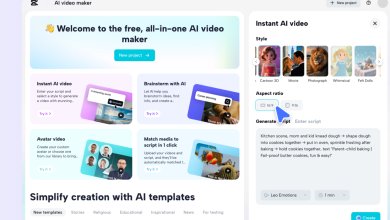
AI can write proposals, summarize meetings, and generate code in seconds. But it still can’t look a teammate in the eye after a hard week and say, “I see you. I’ve got you. We’ll figure this out together.”
In a world accelerating toward automation, there’s a growing illusion that human leadership is becoming obsolete and as long as we train the right models and scale the right tools, everything else will take care of itself. But the truth is more subtle, and more urgent: the gap we’re facing is not just technological. It’s emotional.
While machines are rapidly evolving to mimic our logic, humans are struggling to maintain their presence. Many leaders are overwhelmed, disconnected, and defaulting to efficiency over empathy. The result? A widening emotional intelligence gap — one that no algorithm can close for us.
And yet, this isn’t a crisis. It’s an invitation.
Emotional intelligence is no longer a “nice to have.” It’s not a side dish to strategy or an optional leadership style. In the age of AI, emotional intelligence is the differentiator. It’s what makes human leadership matter. Not in spite of AI — but because of it.
In this article, we’ll explore why emotionally attuned leadership isn’t just relevant, it’s essential. Because when artificial intelligence becomes ubiquitous, it’s emotional intelligence that becomes rare.
And anything rare becomes valuable.
What AI Can and Can’t Do
AI is undeniably impressive. It can distill research papers, track customer behavior, predict market shifts, and even generate design mockups that would take a human team days. It has mastered the realm of repetition, precision, and prediction — and it’s only getting faster.
But while AI can process content, it doesn’t understand context. It can mimic tone, but it doesn’t feel impact. It can follow patterns, but it doesn’t sense meaning. These aren’t just philosophical differences — they’re practical ones, especially in leadership.
Imagine receiving a perfectly worded response to a team conflict — drafted by AI. On paper, it’s flawless. But something’s missing. The tone is flat. The timing is off. The subtle, emotional intelligence that calms tension, restores trust, or honors a human moment just isn’t there. And that gap? That’s where you matter.
AI doesn’t have instincts. It doesn’t read the room. It doesn’t know when someone’s holding back tears behind a screen or when a silent pause is a cry for connection. It can’t feel the
weight of a decision or recognize that what someone isn’t saying matters more than what they are.
And it shouldn’t have to.
Because these are the moments that define leadership — not as a position, but as a presence. They can’t be outsourced. They can’t be automated. And they shouldn’t be.
The leaders of the future aren’t the ones who rely most on AI. They’re the ones who know when not to.
The Rise of Emotionally Absent Leadership
As AI tools normalize productivity on autopilot, many leaders unintentionally begin outsourcing their presence too, leaving teams disconnected and emotionally directionless.
Gallup’s State of the Global Workplace 2025 report (https://www.gallup.com/workplace/349484/state-of-the-global-workplace.aspx) warns that emotional absence among managers is spiraling. Only 23% of employees feel fully engaged, while more than half are quietly quitting — showing up but withholding commitment and heart. This isn’t laziness or entitlement, it’s a response to emotional neglect and lack of meaningful interaction.
What’s starker is the trend among managers themselves. Their engagement is in free fall—just 27% remain engaged, pulling their teams into the same emotional depletion . Without emotionally present leaders, the gap between automation and human connection widens and teams start to drift.
The fallout isn’t just internal. Gallup estimates employee disengagement costs the global economy $438 billion in lost productivity in 2024 alone . Quiet quitting doesn’t just hollow out culture it erodes innovation, trust, and the capacity to adapt.
Meetings filled with data, AI-written emails, and task dashboards aren’t enough. When leadership lacks warmth, presence, or emotional attunement, the vacuum gets filled with silence, indifference—or worse, burnout.
We don’t need leaders who can keep pace with AI. We need leaders who slow down enough to truly see, and lead, their teams.
Because an emotionally absent leader doesn’t just leave a gap. They leave a vacuum, and vacuums always get filled—sometimes by fear, stress, or systems that were never meant to lead.
Emotional Intelligence Is Now a Strategic Advantage
For years, emotional intelligence was labeled a “soft skill.” Optional. Intangible. Something to add if there was time. But in 2025, it has become a strategic imperative, not because it’s trendy, but because it’s effective.
Emotional intelligence is not about being nice. It’s about being attuned — to oneself, to others, and to the emotional field of a room, a conversation, or a culture. It is the ability to sense tension before it erupts, to listen beyond the words, and to lead from groundedness rather than reaction.
At its core, emotional intelligence includes four key abilities:
- Self-awareness – recognizing your own emotions and patterns
- Self-regulation – managing reactivity and showing up with intention
- Empathy – attuning to the emotions and unspoken needs of others
- Relational skill – building trust, resolving conflict, and inspiring connection
According to the World Economic Forum’s Future of Jobs Report 2025 (https://www.weforum.org/reports/the-future-of-jobs-report-2023/), emotional intelligence ranks among the top 5 skills for the evolving workforce. Not because AI replaces human intelligence, but because it requires it to succeed in real-world contexts.
This shift isn’t just theoretical. Teams led by emotionally intelligent managers consistently outperform in retention, engagement, and innovation. Why? Because emotional coherence builds relational capital — the invisible thread that keeps organizations adaptive and human-centered.
In the face of exponential change, emotional intelligence becomes more than a leadership style. It becomes a stabilizing force. A differentiator. A mirror of the kind of world we’re building — or breaking.
And the leaders who invest in it now won’t just be ready for the future. They’ll shape it.
A New Kind of Leadership Is Emerging
The leaders we need now aren’t the ones with the most answers. They’re the ones who can hold space for uncertainty, guide others through complexity, and bridge the growing gap between human and machine.
A new kind of leadership is emerging. One that’s less about control and more about coherence. These leaders don’t just manage AI tools. They translate between worlds. They understand that a team doesn’t need more automation. It needs more attunement. It needs someone who can sense when silence speaks louder than metrics, when friction signals misalignment, and when the moment calls for stillness instead of speed.
These aren’t abstract ideals, they’re already being practiced by a quiet wave of pioneers:
In our own organization, we recently made the difficult decision to let go of a team member. It wasn’t because of AI implementation, it was because their role required constant oversight, emotional labor, and hand-holding that was no longer sustainable. This wasn’t a failure of technology or even skill. It was a reminder that emotional presence, self-
leadership, and adaptability are now essential qualities in any human team member. As systems scale, so must our capacity to relate, self-regulate, and grow.
- Executives rethinking implementation timelines to honor team well-being
- Startups investing in relational skills-building alongside technical training
- Organizations appointing Chief AI Ethics Officers and Empathy Architects — not as PR gestures, but as pillars of future-forward culture
These leaders recognize that the presence they bring into a room will shape not only the team dynamic, but the AI tools being trained alongside them. They know that culture doesn’t scale through code. It scales through resonance.
In a world of noise, they listen. In a world of speed, they slow down. In a world obsessed with knowing, they lead from presence.
They don’t fear AI. They relate to it. And in doing so, they teach everyone around them what it means to be fully human in the age of machines.
What AI Reveals About Us
The deeper we go into this AI evolution, the clearer it becomes: we’re not just building machines. We’re building mirrors.
Everything we automate reflects something we value. Everything we optimize reveals what we prioritize. Every interaction we have with AI teaches it, and teaches us, what we believe leadership should look like. In this way, AI becomes less of a tool and more of a reflection pool: echoing our tone, mimicking our mindset, magnifying our culture.
If leaders treat people like outputs, AI will learn to do the same. If we lead from fear, control, or detachment, those energies embed themselves — not only into algorithms, but into the emotional blueprint of our organizations.
What if we lead with attunement, presence, and care? That gets encoded too.
What we model becomes what AI mirrors. And what AI mirrors becomes the environment others inherit. In this light, leadership isn’t just an act of guidance, it’s an act of imprinting. And emotional intelligence isn’t just a skill. It’s a signal to the future.
Leadership in the age of AI is not about staying ahead of the curve. It’s about becoming the curve and the living pattern AI learns to follow.
So, “Can AI be emotional?” Perhaps it’s better to ask, Will we be?
Because AI is watching. And it will reflect whatever we show it.
Emotional Intelligence Isn’t Optional — It’s Evolutionary
As AI becomes more embedded in how we work, think, and communicate, the temptation is to become faster, smarter, and more efficient — to meet machine with machine.
The true opportunity of this moment is to meet machine with humanity.
Emotional intelligence isn’t the opposite of artificial intelligence. It’s the bridge between a mechanized world and a meaningful one. It’s what ensures that in a future shaped by algorithms, we don’t lose touch with our ability to connect, relate, and lead with heart.
This isn’t about resisting AI. It’s about relating through it and choosing to build systems that reflect the best of who we are, not just the fastest. Choosing to lead not from reactivity, but from resonance.
The leaders who will shape the next era aren’t the ones who master every emerging tool. They’re the ones who master themselves. Who cultivate emotional fluency in a time of noise. Who show up present, steady, and deeply human, especially when it would be easier not to.
Because the truth is: AI will keep evolving. Will we?




